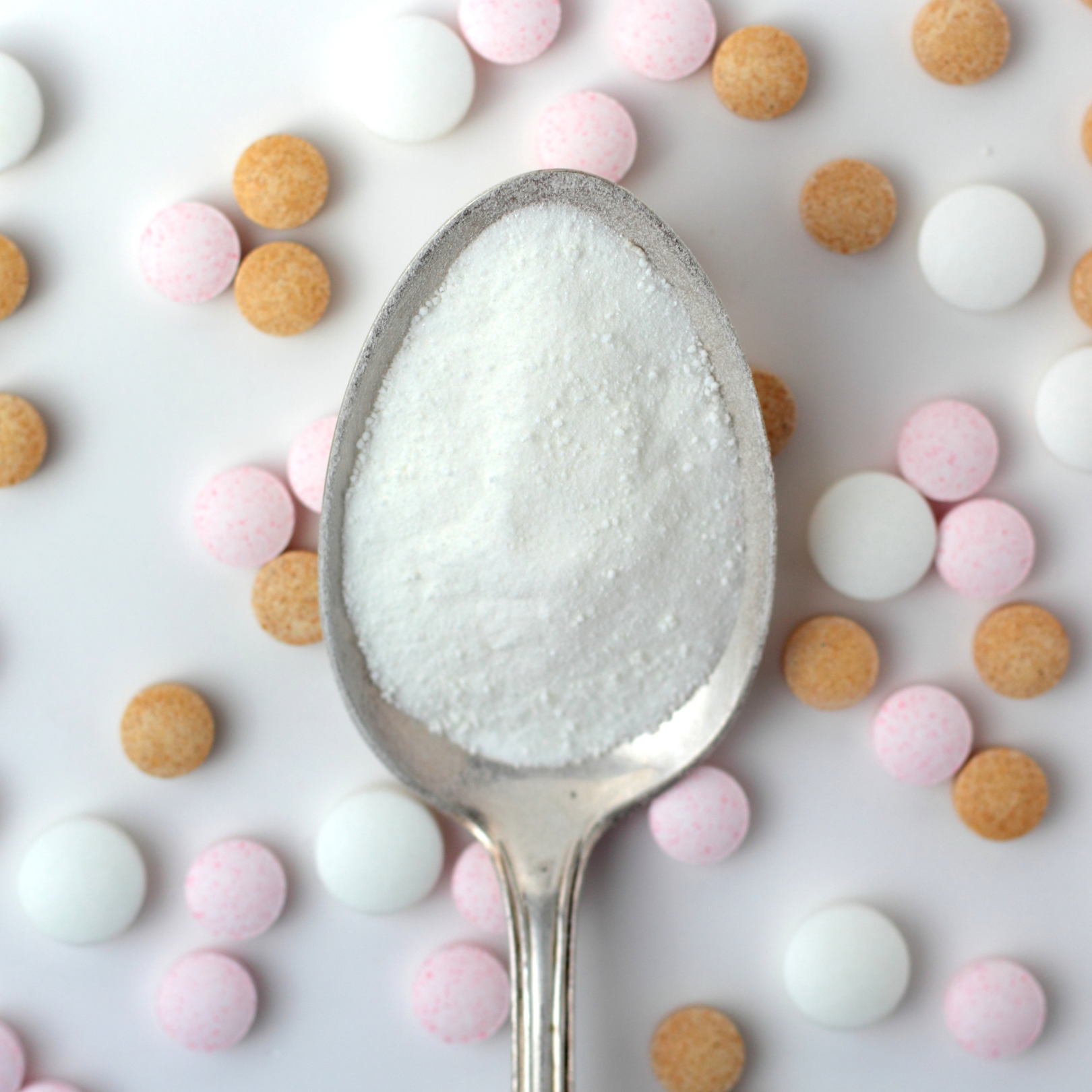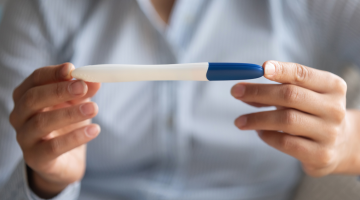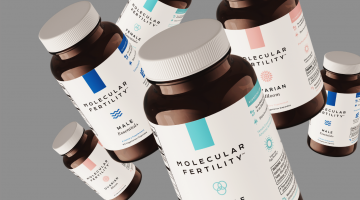Inositol for PCOS: How It Improves Ovulation, Egg Quality, and Pregnancy Rates

Inositol is a type of sugar molecule that is similar to glucose but has very different biological functions. Inositol has been studied extensively as a dietary supplement due to its potential benefits for people with Polycystic Ovary Syndrome.
Many fertility specialists are interested in inositol because research suggests it can support more regular ovulation and may improve pregnancy outcomes.
This article explores how inositol works, why it is linked to insulin and PCOS, and what research shows about improving ovulation, egg quality, and pregnancy rates. We’ll also discuss ideal dosage, the difference between myo-inositol and D-chiro-inositol, and what to consider when choosing the right supplement for you.
Inositol and PCOS: Fast Facts
- PCOS and Insulin Resistance: PCOS is the most common cause of infertility worldwide and is strongly linked to high insulin levels. Elevated insulin disrupts hormone production and can lead to acne, irregular ovulation, excess hair growth, and infertility. Many specialists believe that high glucose and insulin levels, along with resulting insulin resistance, are major drivers of PCOS symptoms.
- How Inositol Helps: Inositol has been shown to improve insulin sensitivity and reduce insulin resistance.
- Natural Inositol Deficiency in PCOS: People with PCOS often have naturally lower inositol levels. This deficiency can worsen insulin resistance and hormonal imbalance.
- Inositol and Ovulation: Supplementing with inositol has been shown to support ovulation and may improve pregnancy rates.
- Inositol and IVF Success: Inositol may also improve clinical pregnancy rates in infertile women without PCOS undergoing IVF or ICSI.
- Why It Works: Researchers believe these benefits are linked to inositol’s role in insulin signaling and glucose metabolism.
What Is PCOS
Polycystic Ovary Syndrome (PCOS) is one of the most common endocrine disorders in women and is the leading cause of infertility.
PCOS accounts for about a quarter of all infertility cases.
Common symptoms of PCOS include:
- Irregular or absent menstrual cycles
- elevated testosterone.
- acne, excess hair growth
- difficulty ovulating
- insulin resistance.
Although the exact cause of PCOS is not fully understood, many women with the condition have reduced sensitivity to insulin. In this situation, the body responds by producing even more insulin, which can worsen androgen production. High insulin stimulates the ovaries to produce more testosterone.
The result is a hormonal imbalance that can disrupt follicle growth and ovulation, making it harder to get pregnant.
What Is Inositol
Inositol is a biological compound that exists in several forms, known as isomers. Myo-inositol and D-chiro-inositol are the two forms most commonly used in fertility supplements.
Inositol plays many roles in the body, including :
- supports chemical signaling in cells
- a significant component of cell membranes
- supports insulin signaling and glucose metabolism
- involved in various reproductive processes
Although inositol is found in fruits, beans, nuts, and whole grains, research shows that people with PCOS have difficulty converting inositol from food into bioactive forms.
As a result, they may have lower levels of available myo-inositol and D-chiro-inositol. This can contribute to hormone imbalance, insulin resistance, and reproductive challenges.
Most supplements provide inositol in the already bioavailable forms, which allows the body to use it right away.
How Inositol Improves Fertility in PCOS
Women with PCOS are much more likely to be insulin-resistant. The body still produces insulin, but cells do not respond to it effectively.
When this happens, insulin levels rise. Higher insulin stimulates the ovaries to make more testosterone, which can disrupt ovulation.
Insulin resistance can also affect the balance between LH and FSH. When FSH is low, eggs do not mature properly, which contributes to irregular cycles and infertility.
Inositol helps interrupt this cycle by supporting insulin signaling and glucose metabolism.
Research shows that inositol can:
• Improve insulin sensitivity
• Lower circulating insulin
• Reduce testosterone levels
• Support healthier LH and FSH balance
• Improve ovulation and menstrual regularity
What the Research Says
Some studies have found that myo-inositol may reduce insulin resistance by up to seventy percent.
In a randomized clinical trial, twelve weeks of myo-inositol significantly reduced LH and testosterone, improved insulin sensitivity, and restored regular menstrual cycles.
Additional research shows that inositol plays a key role in reproductive signaling, oocyte maturation, and normal ovarian physiology.
When insulin levels improve, testosterone often decreases. This hormonal shift supports more predictable ovulation and a better environment for conception.
The Takeaway
Inositol helps the body use insulin more effectively, reduces excess testosterone, supports healthier ovulation, and may improve fertility outcomes for people with PCOS.
How Inositol Supports Ovulation
To conceive naturally, an ovary must release an egg. Many women with PCOS do not ovulate regularly because of hormonal disruption. Research shows that inositol may help restore predictable ovulation.
In one study of 25 infertile women with PCOS :
- 22 experienced at least one spontaneous menstrual cycle while taking inositol
- 72% percent maintained normal ovulatory activity for six months
- 10 participants became pregnant
- Researchers concluded that inositol can restore spontaneous ovarian activity in most PCOS patients
How Inositol Improves Egg and Embryo Quality
Egg quality is essential for fertilization and embryo development. Studies show that inositol may support healthier eggs, especially in people with PCOS.
In one clinical trial of IVF patients, the inositol group produced more mature follicles, higher quality oocytes, and better embryo development than the control group.
Another study found higher fertilization rates and better embryo quality in women taking inositol. They also produced fewer total oocytes, which may reduce the risk of ovarian hyperstimulation.
Inositol and Pregnancy Rates
In one trial of 116 infertile women with PCOS, six months of inositol supplementation resulted in a clinical pregnancy rate of 45.5 percent. Researchers concluded that inositol improved hormonal balance, metabolic health, and reproductive outcomes.
In another review of seven studies with 935 participants, inositol was associated with significantly higher pregnancy rates.
Inositol Dosage for PCOS
When choosing an inositol supplement for PCOS, the most important consideration is the ratio of myo-inositol to D-chiro-inositol.
Myo-inositol is the most abundant form in the body and plays a major role in egg maturation. In IVF patients, myo-inositol has been shown to improve oocyte quality and reduce the total dose of stimulation medications needed.
D-chiro-inositol also plays an important role in metabolic health, but taking too much can have the opposite effect on fertility. In one study, high doses of DCI led to fewer mature embryos and more immature ones.
Research shows that the ideal physiological ratio of myo-inositol to D-chiro-inositol in the body is about forty to one.
The Best Inositol Supplements for PCOS
Choosing a supplement that uses this same ratio is recommended to support ovulation, egg development, and overall reproductive health.
CNY Fertiity founder, Dr. Robert Kiltz developed Molecular Fertilty advanced Myo-Inositol & D-Chiro Inositol powder to help nurture reproductive wellness and create a strong foundation for natural conception or assisted journeys like IVF or IUI.
Rule of thumb
A simple rule of thumb is to select an inositol supplement that contains mostly myo-inositol with a small, physiologic amount of D-chiro-inositol.Inositol for PCOS: The Bottom Line
Inositol is a promising, low-intervention option for people with PCOS who are trying to improve ovulation, support egg quality, and increase pregnancy odds.
When taken at the appropriate dosage and ratio, inositol may improve hormonal balance and reproductive outcomes. It has also been linked to improved embryo quality in IVF cycles and may support clinical pregnancy outcomes.
As with any supplement, choose a high-quality formula with bioavailable ingredients and an evidence-based ratio of myo-inositol and D-chiro-inositol.





